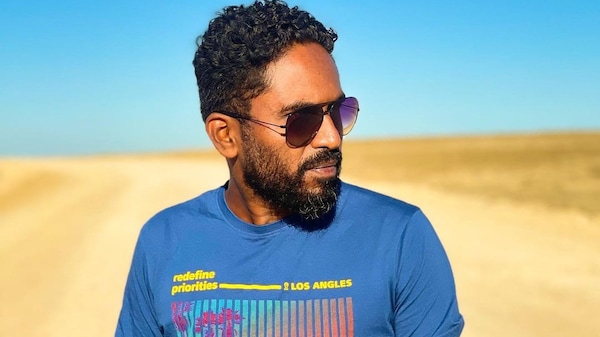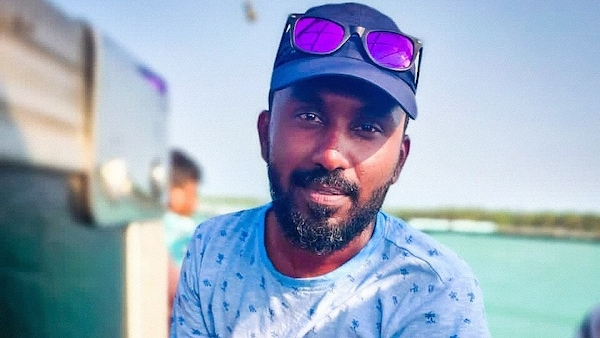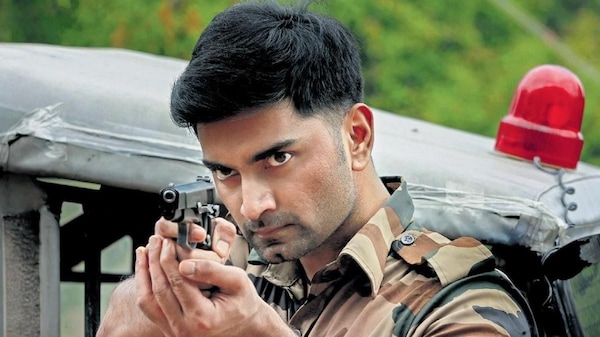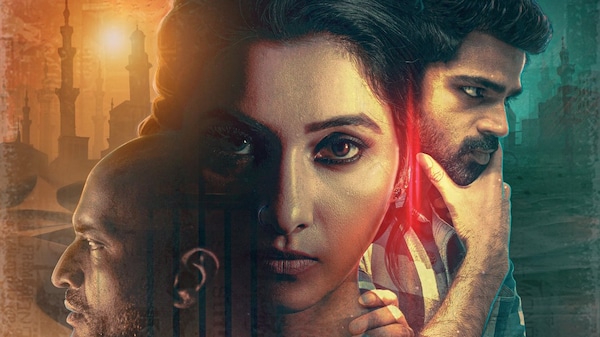Exclusive! Sarjun: When you try something unconventional, you are more susceptible to failure
The director opens up about his Zee5 original film, Blood Money, which dropped on the digital platform today

Sarjun KM
Last Updated: 09.39 PM, Dec 24, 2021
Director Sarjun KM is someone who had turned heads with his debut short film, Lakshmi. Having directed a few more projects in the recent years, including another short film, a few movies and an anthology, the filmmaker says he has consciously chosen not to follow the herd from the beginning of his career.
With his latest movie, Blood Money, having dropped on Zee5 today, he talks about how he came on board for the project which deals with an unusual story, differences while working for OTT and theatrical releases, the way in which he looks at criticism of his works and more in an exclusive chat with OTTplay. Excerpts...
Blood Money is about how a journalist in Chennai sets out to save two Indian men from getting hanged in Kuwait. Was this story based on any real incident?
The story, in fact, is based on many real incidents. There was a similar case where the execution of a person was cancelled a day before he was supposed to be hanged. It's true that we have added fictional elements towards the end of the story. The film's basic premise was two Tamil men getting stranded at Kuwait even after arranging blood money.
Which aspect of the story fascinated you and what made you decide to make a film on it?
The story was initially locked by Zee5. They approached me and asked if I'm interested in directing this particular subject. I came on board only as the director. I was okay per cent okay with the story and screenplay. We held discussions about the 5 per cent and they were quite flexible in bringing the little changes I had suggested.

The film has a run time of 90 mins. Was it their idea not to exceed the duration?
Yes, they were keen on making a binge-watch movie which was devoid of songs and intermission. They wanted the audience to enjoy the movie at one stretch. But I felt that 95 or 100 mins duration would have been more apt for this subject.
Since the film involves a political issue which happens in India, Kuwait and Sri Lanka, don't you think the subject deserved more duration and bigger canvas?
There were two ways to deal with the subject. If the story is told from the point of view of the person who is getting hanged, we could have played up the emotional angle. But Zee5 wanted us to approach it as a fast-paced thriller as the story was supposed to be told from the journalist's perspective.
Were the actors, including Priya Bhavani Shankar who played the lead, too, brought on board by them?
Priya was already chosen by them. The other actors, including Kishore, were my selection. I have worked with Kishore earlier; he is one of my favourite actors. Moreover, he liked the script and he was apt for the role of a helpless father.
How was it to direct a film which was meant as a direct-to-OTT release? Your last outing, Thunintha Pin from Navarasa, had a direct release on Netflix...
The filmmaking process is absolutely same; there isn't any difference. The only notable difference according to me is that you miss experiencing your movies on the big screen. But I think we filmmakers will get used to it. It's just that they have to strike a balance between theatrical release and OTT release. Right now, I'm pitching a web series for Netflix apart from a theatrical release.

How much do you think the OTT boom has revolutionized filmmaking in Tamil cinema?
I think we are still in the beginning stage. The OTT boom has started only after COVID-19 hit us badly. I think it will take at least five years to properly understand how the trend is going to revolutionize content consumption.
All your films, Echcharikkai, Airaa, Thunintha Pin and Blood Money, are different from each other with regard to their themes. Is it a purposeful decision to attempt different genres and story backdrops?
When I had set out to make films, the first thing I had decided was not to do usual things and join the herd. I wanted to bring some difference in all the subjects I attempt at. But I know that this decision comes with a price. When you try something unconventional, you are more susceptible to failure. I'm quite aware of that fact.

As someone who is aware of that unfortunate fact, how receptive are you to criticism?
I'm someone who often introspects my choices and films. You can either choose to make successful movies that don't satisfy you or be content with making unsuccessful films that leave you gratified. I know that it will take time to reap success with the kind of films I want to make. I know that Thunintha Pin didn't garner much positive reviews whereas Airaa opened to totally negative reviews. I look up to reviews to know whether I have any takeaways from them.

 Premium
Premium